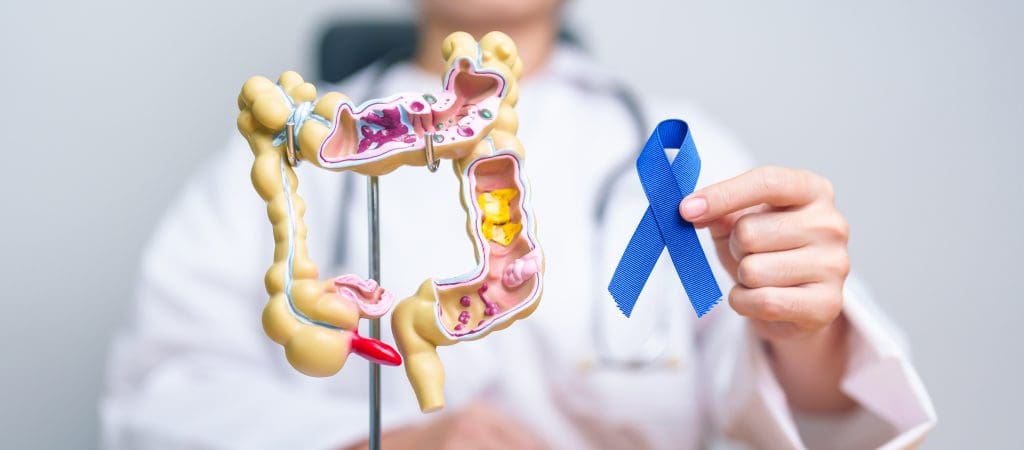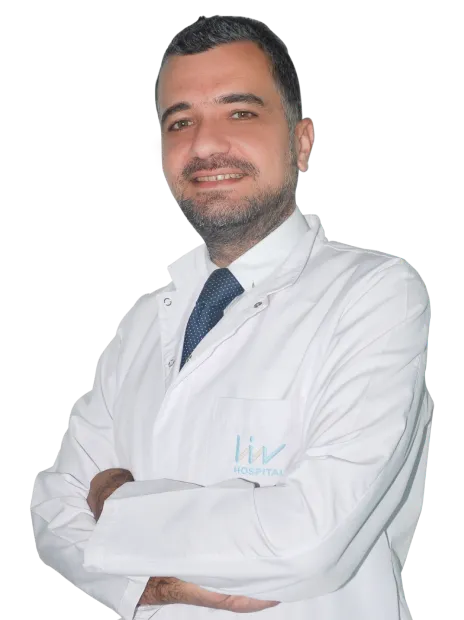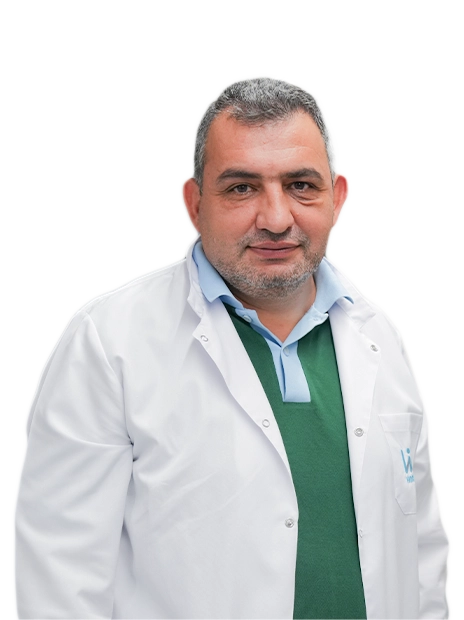Can colon cancer be cured permanently? Recent data shows that over 90% of people with early-stage colon cancer are alive five years after being diagnosed. This shows how key early detection and treatment are for better survival rates.
Colon cancer often starts with polyps in the colon’s lining. Screening tests are vital in finding and removing these polyps. This helps stop cancer from developing.
It’s important for those with colon cancer to know about the chance of a permanent cure. Being diagnosed early greatly boosts the chances of successful treatment.

Key Takeaways
- Early detection of colon cancer significantly improves survival rates.
- Screening tests can detect and remove precancerous polyps.
- Treatment at an early stage can lead to a higher chance of a cure.
- Survival rates for early-stage colon cancer are over 90% five years after diagnosis.
- Understanding treatment options is key for patients.
Understanding Colon Cancer: Types, Stages, and Diagnosis
Colon cancer is a complex disease with different types and stages. Knowing how it’s diagnosed is key for effective treatment. It’s one of the most common cancers, affecting the large intestine.
Common Types of Colon Cancer
The most common type of colon cancer is adenocarcinoma, making up about 90% of cases. Other types include carcinoid tumors, lymphomas, and sarcomas.
The TNM Staging System Explained
The TNM staging system classifies colon cancer based on tumor size (T), lymph node involvement (N), and metastasis (M). It helps determine the prognosis and treatment plan.
Diagnostic Methods and Their Accuracy
Colonoscopy is a common method for diagnosing colon cancer. It lets doctors examine the inside of the colon and rectum. Other tests include CT scans, MRI, and biopsy. Colonoscopy is considered very accurate.
| Diagnostic Method | Accuracy |
| Colonoscopy | High |
| CT Scan | Moderate |
| Biopsy | High |
Understanding colon cancer types, stages, and diagnostic methods is vital. It helps improve patient outcomes and achieve colon cancer remission. The prognosis for stage I colon prognosis and stage II colon prognosis depends on the stage and patient’s health.
Treatment Options for Colon Cancer
Colon cancer treatment includes surgery, radiation, chemotherapy, and new methods. The right treatment depends on the cancer’s stage, location, and other factors.
Surgical Interventions and Success Rates
Surgery is a main treatment for colon cancer. It aims to remove the tumor and affected colon parts. Success rates vary by cancer stage.
Early-stage colon cancer has a better surgery success rate.
The table below shows surgery success rates by cancer stage.
| Stage | Success Rate |
| Stage I | 90% |
| Stage II | 70-80% |
| Stage III | 50-60% |
Radiation Therapy Approaches
Radiation therapy kills cancer cells or slows their growth. It can be used before or after surgery.
Types of Radiation Therapy:
- External beam radiation therapy
- Internal radiation therapy (brachytherapy)
Chemotherapy Protocols
Chemotherapy uses drugs to kill cancer cells. It can be used before or after surgery, or as a main treatment for advanced cancer.
Emerging Treatment Modalities
New treatments include immunotherapy, targeted therapy, and precision medicine. These offer hope for better treatment outcomes.
Immunotherapy boosts the body’s immune response against cancer cells.
Defining “Cure” in the Context of Colon Cancer
The idea of a “cure” for colon cancer is complex. It involves many medical and statistical factors. It’s key to know the medical terms and benchmarks for treatment success.
Medical Definition of Cancer Cure
A cancer cure means all cancer cells are gone, with no coming back. For colon cancer, this means the patient stays cancer-free after treatment.
The Five-Year Survival Milestone
The five-year survival rate is a key measure of treatment success. It shows the percentage of patients alive five years after diagnosis. The American Cancer Society says the five-year survival rate for colon cancer depends a lot on the stage at diagnosis.
“The five-year survival rate for colon cancer patients diagnosed at a localized stage is approximately 90%, highlighting the importance of early detection.” – American Cancer Society
Remission vs. Complete Cure
Remission means the disease is controlled, with no signs of cancer. A complete cure means the cancer won’t come back. These terms are close but not the same, as remission doesn’t always mean a cure.
| Stage at Diagnosis | Five-Year Survival Rate |
| Localized | 90% |
| Regional | 71% |
| Distant | 14% |
Knowing these definitions and stats is vital for patients and doctors. It helps make informed decisions about treatment and care.
Is a Colon Cancer Permanent Cure Possible?
To know if colon cancer can be cured forever, we need to look at what doctors say and how treatments work. If caught early, the chance of a cure is better. This depends on when the cancer is found.
Current Medical Consensus
Doctors think colon cancer can be cured, mainly if caught early. Early detection makes treatment more likely to work. Experts say, “The cure for colon cancer depends a lot on when it’s found.”
“Early-stage colon cancer is often curable with the right treatment. But, advanced stages are harder to cure.”
Factors That Influence Curability
Many things affect if colon cancer can be cured. These include when it’s found, the patient’s health, and the treatment plan. Genetics also matter a lot. If the cancer has spread, treatment is harder and a cure is less likely.
Long-term Remission Statistics
How long colon cancer patients stay in remission changes with the stage at diagnosis. Early-stage patients have a better five-year survival rate. Regular check-ups are key to catching cancer early. Studies show stage I patients do much better than stage IV.
Even with early detection, the risk of cancer coming back is a worry, more so for advanced cases. Knowing what affects colon cancer recurrence risk helps doctors care for patients better. For metastatic colon cancer, getting into remission is a big win. But, it’s not always a permanent fix.
Early-Stage Colon Cancer: Prognosis and Outcomes
It’s important to know about the prognosis and outcomes of early-stage colon cancer. Early detection and treatment can greatly improve survival rates and quality of life. This section will explore the specifics of stage I and stage II colon cancer prognosis and the success of surgical interventions.
Stage I Colon Prognosis and Cure Rates
Stage I colon cancer is when the cancer is only in the colon wall. Treatment at this stage is often curative, leading to a high chance of long-term remission. The five-year survival rate for stage I colon cancer is about 92%.
Stage II Colon Prognosis and Treatment Success
In stage II colon cancer, the disease has grown through the colon wall but hasn’t reached nearby lymph nodes. Treatment success depends on several factors, including the cancer’s genetic makeup and the patient’s health. The five-year survival rate for stage II colon cancer varies from 63% to 87%, based on the specific sub-stage.
Colon Cancer Surgery Cure Rates
Surgery is the main treatment for early-stage colon cancer. Cure rates following surgery are high for stage I and stage II colon cancer, provided the cancer is completely removed. The success of surgery is key to achieving long-term remission.
| Stage | Five-Year Survival Rate | Treatment Success Factors |
| Stage I | 92% | Early detection, surgical removal |
| Stage II | 63-87% | Cancer genetics, patient health, surgical success |
Advanced Colon Cancer Treatment Outcomes
It’s important to know about treatment outcomes for advanced colon cancer. This is true for both patients and healthcare providers. Stage III and metastatic cases are tough but can see better survival rates with the right treatment.
Stage III Colon Prognosis and Survival Rates
Stage III colon cancer has spread to nearby lymph nodes but not far. Thanks to better surgery and adjuvant therapies, survival rates have gone up. Studies show a five-year survival rate of 40% to 70% for stage III colon cancer.
Metastatic Colon Remission Possibilities
Metastatic colon cancer is harder because it has spread to distant organs. But, new chemotherapy, targeted therapy, and immunotherapy can help some patients get better. “New treatments have changed how we fight metastatic colon cancer,” says a recent report.
Advanced Colon Effective Cure Approaches
For advanced colon cancer, treatments often include surgery, chemotherapy, and radiation. Sometimes, removing the tumor and metastases can cure the disease. Also, precision medicine helps tailor treatments to each patient’s cancer.
The fight against advanced colon cancer is getting better, thanks to new research. Patients should talk to their doctors to find the best treatment for them.
Colon Cancer Five-Year Survival by Stage
Colon cancer survival rates change a lot based on when it’s found. Knowing these numbers helps patients, doctors, and researchers. They can see how well treatments work and where they can get better.
Understanding Survival Statistics
Survival stats for colon cancer look at the five-year survival rate. This rate shows how many people live for five years after being diagnosed. These numbers are key for knowing how well treatments work and what to expect.
Five-Year Survival Rates by Stage:
| Stage | Five-Year Survival Rate |
| Stage I | 92% |
| Stage II | 63-87% |
| Stage III | 40-53% |
| Stage IV | 11% |
Cure Rate Colon Cancer by Demographics
Colon cancer cure rates can change based on who you are. This includes your age, gender, and ethnicity. For example, younger people usually do better than older ones.
Demographic Factors Influencing Survival:
- Age: Younger patients generally have better survival rates.
- Gender: Some studies suggest slight differences in survival rates between genders.
- Ethnicity: Survival rates can vary among different ethnic groups due to various factors, including access to healthcare.
Factors Affecting Survival Outcomes
Many things can affect how long colon cancer patients live. These include the cancer’s stage, the patient’s overall health, and how well they respond to treatment.
By knowing these factors and survival stats, patients and doctors can make better choices about treatment and care.
Colon Cancer Recurrence Risk and Prevention
It’s important for patients and doctors to know about colon cancer recurrence. This happens when cancer comes back after treatment. It can appear in the same area, nearby, or in distant parts of the body.
Common Patterns of Recurrence
Colon cancer often comes back in certain ways. It can return in the same spot as the original tumor. Or, it might spread to nearby lymph nodes or tissues. Sometimes, it can even go to other parts of the body, like the liver or lungs.
Risk Factors for Recurrence
There are several things that can make colon cancer more likely to come back. These include:
- Advanced stage at diagnosis: Being diagnosed later means a higher risk.
- Incomplete surgical removal: If not all cancer is removed, it’s more likely to come back.
- Poorly differentiated cancer: More aggressive cancers are at higher risk.
Colon Cancer Recurrence Prevention Strategies
Preventing colon cancer from coming back requires a few key steps. These include:
- Regular follow-up: Regular check-ups can catch recurrence early.
- Adjuvant therapy: Treatments like chemotherapy or radiation can lower the risk.
- Lifestyle modifications: Eating well, exercising, and not smoking can help keep you healthy and lower risk.
By knowing the risks and using prevention strategies, patients can lower their chance of colon cancer coming back.
Breakthrough Treatments Improving Cure Rates
The field of colon cancer treatment is changing fast. New discoveries are bringing hope for better cure rates. Medical research has led to the creation of new therapies that are reshaping how we treat colon cancer.
Immunotherapy Colon Cure Potential
Immunotherapy is showing great promise in fighting colon cancer. It uses the body’s immune system to attack cancer cells. Checkpoint inhibitors and cancer vaccines are being studied for their ability to boost cure rates.
Targeted Therapy Colon Cancer Advancements
Targeted therapy is another big step forward in treating colon cancer. These treatments aim at specific molecules that help cancer grow. By blocking these targets, targeted therapies can slow or stop cancer growth, leading to better results for patients.
Precision Medicine and Genetic Profiling
Precision medicine and genetic profiling are key in colon cancer treatment. They help doctors find the best treatment for each patient. Genetic profiling allows for treatments that match the patient’s cancer, which could lead to higher cure rates.
These new treatments are changing how we manage colon cancer. As research keeps moving forward, there’s a big chance to improve cure rates and patient outcomes.
Colon Cancer Long-Term Remission and Survivorship
Surviving colon cancer is more than just living longer. It’s about enjoying life and rebuilding after the disease. Patients need full care to stay healthy and happy.
Colon Cancer Follow-Up Protocols
Regular check-ups are key for colon cancer survivors. This includes:
- Regular check-ups with healthcare providers
- Imaging tests such as CT scans
- Colonoscopy and other diagnostic procedures
These steps help find any cancer coming back early. They also help manage treatment side effects.
Quality of Life After Treatment
Survivors face many challenges. These can include physical problems, emotional issues, and changes in lifestyle. Supportive care services are very important.
Psychological Aspects of Survivorship
The mind also plays a big role in surviving colon cancer. Survivors might feel anxious, depressed, or worried about cancer coming back. Counseling and psychological support are key parts of care.
| Aspect of Care | Description | Benefits |
| Follow-Up Protocols | Regular check-ups and diagnostic tests | Early detection of recurrence |
| Supportive Care | Services addressing physical and emotional needs | Improved quality of life |
| Psychological Support | Counseling and therapy | Reduced anxiety and depression |
By focusing on these areas, colon cancer survivors can live well. They can face the challenges of long-term remission with hope and support.
Conclusion: The Future of Colon Cancer Treatment
The field of colon cancer treatment is changing fast. New research and discoveries are giving us hope for better survival rates. Early detection and treatment are key to a cure, mainly in the early stages.
New treatments like immunotherapy and targeted therapy are showing great promise. They help patients with advanced colon cancer. Advances in precision medicine and genetic profiling are making treatments more tailored and effective.
The medical world is working hard to improve colon cancer treatment. Patients can look forward to better survival rates and quality of life. With ongoing research and investment, the future of colon cancer treatment is looking bright, bringing hope to those affected.
FAQ
What are the chances of a permanent cure for colon cancer?
The chance of a permanent cure for colon cancer varies. It depends on when the cancer is found. Early-stage cancer has a better chance of being cured. The American Cancer Society says the five-year survival rate is about 90% for stage I and 80% for stage II.
How is colon cancer staged, and what does it mean for treatment?
Colon cancer is staged using the TNM system. This looks at the tumor size, lymph nodes, and if it has spread. Knowing the stage helps doctors choose the best treatment and predict how well the patient will do.
What are the treatment options for colon cancer, and how effective are they?
Treatments for colon cancer include surgery, radiation, chemotherapy, and new methods like immunotherapy and targeted therapy. How well these treatments work depends on the cancer’s stage and the patient’s health.
What is the medical definition of a “cure” in colon cancer?
A “cure” in colon cancer means the cancer is gone, and the patient won’t get it back. But, the term can be complex. Some patients might have long-term remission, not a complete cure.
How does early detection impact colon cancer treatment outcomes?
Finding colon cancer early greatly improves treatment results. Stage I cancer has a much higher cure rate than later stages. Screening tests like colonoscopy can find polyps and early cancer.
What are the common patterns of colon cancer recurrence?
Colon cancer can come back in different ways. It can come back locally, spread to nearby areas, or go to distant places like the liver or lungs. Knowing how it can come back helps doctors plan follow-up care.
How can colon cancer recurrence be prevented or minimized?
To prevent or lessen colon cancer coming back, regular check-ups and follow-up care are key. Adjuvant chemotherapy and lifestyle changes also help. Identifying and managing risk factors can lower the chance of recurrence.
What breakthrough treatments are improving cure rates for colon cancer?
New treatments like immunotherapy, targeted therapy, and precision medicine are boosting cure rates for colon cancer. These advances offer hope, mainly for those with advanced or spread-out disease.
What is the significance of the five-year survival milestone in colon cancer?
The five-year survival mark is important in colon cancer. It means the patient has lived five years after being diagnosed. While it doesn’t always mean a cure, it’s a positive sign and shows treatment success.
How does long-term follow-up care impact colon cancer survivorship?
Long-term care is vital for colon cancer survivors. It helps catch any cancer coming back early and improves life quality. Regular check-ups and support help with the physical and emotional challenges of living after cancer.
What are the cure rates for stage I and stage II colon cancer?
Cure rates for stage I and II colon cancer are high. Stage I has a cure rate of about 90-100%. Stage II has a cure rate of 70-80% with the right treatment.
Can metastatic colon cancer be put into remission?
Metastatic colon cancer is usually not curable, but some patients can go into remission. The chance of remission depends on how far the disease has spread and how well it responds to treatment.



































